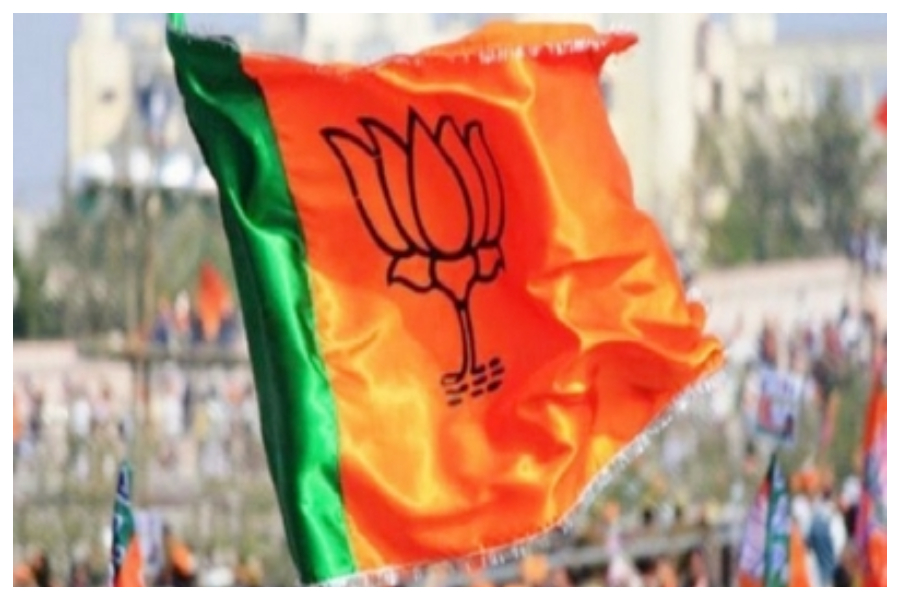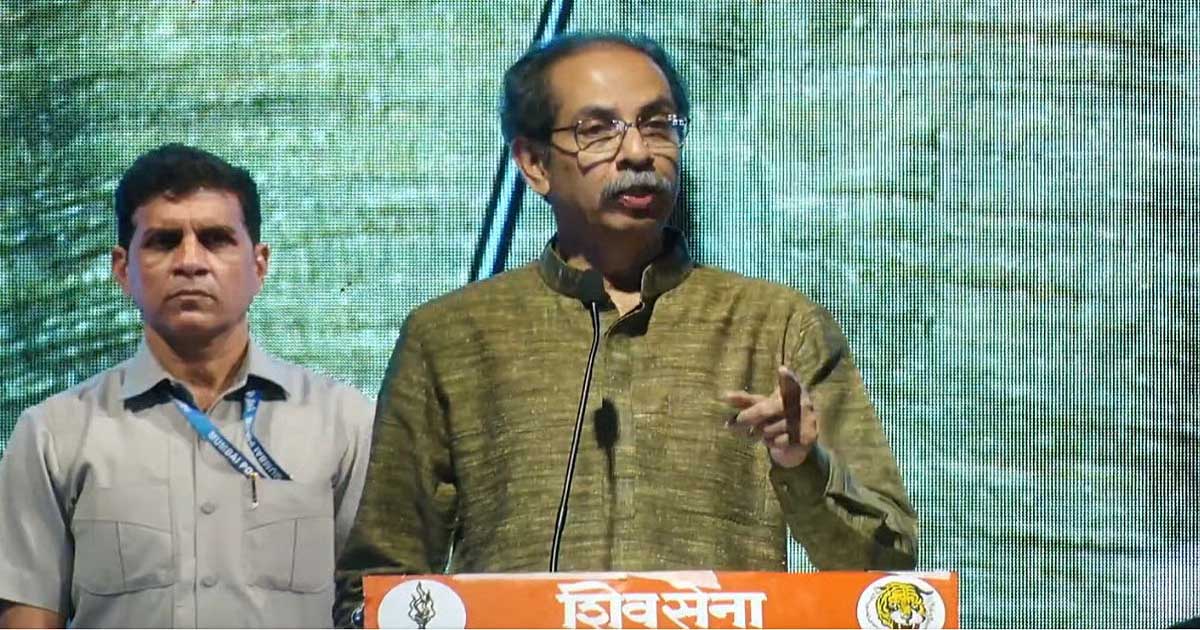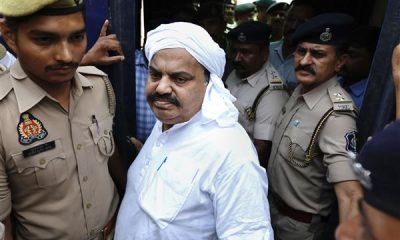Politics
Bengal BJP to approach President against state government on Member of Parliament Local Area Development

A delegation of all 16 BJP Lok Sabha MPs from West Bengal will approach President Ram Nath Kovind with complaints that they are unable to spend the Member of Parliament Local Area Development (MPLAD) funds on development projects in their respective areas due to lack of cooperation from the local and district administration.
The MPs will go to New Delhi shortly and submit a written deputation to the President. Before approaching the President, they will meet Governor Jagdeep Dhankhar and submit a written deputation to him as well on this count.
Confirming the decision, BJP’s national vice-president and the party MP from Midnapore Lok Sabha constituency in West Bengal, Dilip Ghosh said the state government is deliberately not cooperating with the party members in spending their respective MPLAD funds, so that their expenditure figure on this count cut a sorry figure and BJP does not get a political advantage.
“The district officials also refuse to meet our MPs, when the latter approach the administration with their proposed development projects to be funded from their respective MPLAD funds. We will now highlight this matter,” Ghosh said.
It is learnt that with just two years left from the 2024 Lok Sabha polls, none of the 16 BJP Lok Sabha members have been able to spend even 50 per cent of the MPLAD funds allocated to them. According to Ghosh, although the party MPs regularly submit their proposed expenditure to the administration, a section of the district magistrates, additional district magistrates, sub-divisional officers and block development officers hold them back.
It is learnt that BJP is preparing a list of such bureaucrats who have been ignoring this issue regularly and register complaints against them.
The MPs allege that if MPLAD funds are utilised for a particular project, as per rule, the name of the MP concerned has to enlisted and displayed at the project site. “The ruling Trinamool Congress do not want that and hence the bureaucrats are resorting to such non- cooperation as per the instructions of the ruling party leaders,” Ghosh said.
The Trinamool Congress leaders have overruled such allegations and described it as an attempt to malign the party.
Crime
RG Kar rape victim’s parents dismiss NCRB report calling Kolkata ‘safest city’

Kolkata, Oct 4: The parents of the R.G. Kar Medical College and Hospital, on Saturday, have refuted the latest report of the National Crime Records Bureau (NCRB) published, where Kolkata has been termed as the safest city across the country.
As per the NCRB report, Kolkata for 2023 (latest available) has recorded the lowest cognisable offences per lakh people, which is the fourth time in a row.
On Saturday, while speaking to the media persons, the parents of the R.G. Kar victim rubbished this part of the NCRB report, and claimed that these findings were not based on proper field research and probably the report was prepared to please anyone.
“Was my daughter secured, and that too at her workplace? Was the senior citizen at Kultali in South 24 Parganas district, who became a victim of gang-rape this week, safe? No one is secure here. I do not know who prepared the report. It seems that the report was prepared while sitting in the comfort of the office and without any proper field-based research,” the victim’s mother said.
The victim’s father expressed doubts over the credibility of those in the NCRB who have prepared the report.
“I do not know who in NCRB is responsible for preparing such reports. Even if I believe that the report of Kolkata being the safest city in the country, does that not mean the safety aspect in other Indian cities is unimaginable? I doubt that the NCRB had been misled, and hence the outcome was such a report,” the victim’s father said.
According to him, the only possibility is that the police personnel in Kolkata do not register most of the complaints filed by common people, and hence the crime figures in the city are projected as low.
“We can realise what the reality is since our daughter left. Probably, the experiences are the same,” he added.
As per the latest report of NCRB, Kolkata recorded 83.9 cognisable offences per lakh people in 2023, the lowest among the 19 cities.
Crime
Palghar Crime: Naigaon Police Arrest 35-Year-Old Murder Accused From Ship At Okha Port In Gujarat After Month-Long Manhunt

Palghar, Maharashtra: In a significant breakthrough, the Naigaon Police have arrested a murder accused who had been absconding for nearly a month. The accused, Sunil Kharpat Prajapati (35), was traced and detained from a ship docked at Okha-Dwarka port in Gujarat after a meticulous manhunt.
The case dates back to September 7, 2025, when a dispute broke out between two workers of Synergy Hygiel Company at Kaman, Vasai (East). The deceased, Dilip Saroj, and the accused, Prajapati, had been given money by their employer, Prakash Ghunkar Chamaria, to share expenses for meals. However, Prajapati allegedly withheld the amount from Saroj, sparking a heated quarrel.
According to police, during the altercation, Prajapati assaulted Saroj with a blunt object, inflicting severe injuries on his head, eyes, and right arm. Saroj succumbed to his injuries while undergoing treatment, leading police to upgrade the charges to murder under Section 103(1) of the Bharatiya Nyaya Sanhita, 2023.
Given the gravity of the crime, senior officers formed two dedicated teams from the Crime Detection Branch to trace the fugitive. Acting on credible intelligence, investigators learned that the accused had taken shelter aboard a vessel at Okha port in Gujarat. Over 200 ships in the vicinity were thoroughly searched before police located Prajapati hiding on one of them.
He was taken into custody and later confessed to his role in the crime during questioning, officials said. The accused is now in police custody, and further investigation is underway.
National News
Shiv Sena (UBT) Chief Uddhav Thackeray Slams BJP For Vitiating Harmony; Calls Devendra Fadnavis ‘Helpless’ CM Amid Corruption, Farmer Distress

Pune, Oct 4: Shiv Sena (UBT) leader Uddhav Thackeray on Saturday dubbed Devendra Fadnavis a “helpless” chief minister who has failed to crack down on “rampant corruption” under his watch.
Citing the announcement of various welfare schemes in poll-bound Bihar, he appealed to the Centre to extend financial assistance to women in Maharashtra.
Thackeray addressed gatherings of women and Sena (UBT) workers in Pune. He also interacted with the media.
Addressing an interaction organised by the Pune Union of Working Journalists, Thackeray said the Sena (UBT) did not need a certificate on Hindutva from the Bharatiya Janata Party, which was “creating walls within the country.”
“India is a beautiful country. It has a great culture. However, these people (BJP) have vitiated the entire atmosphere and made it hell. These people have created walls within the country. I have been working hard to prevent further deterioration.
“I have said time and again that the BJP cannot run governments in the state or at the Centre. The Narendra Modi government has failed to address issues in Kashmir and Manipur,” the former Maharashtra chief minister alleged..
The BJP is taking the country on the path of dictatorship, Thackeray added. Attacking Fadnavis, he said, “I don’t consider anybody as an enemy, not even the prime minister. But considering the state’s current situation, the chief minister looks ‘hatbal’ (helpless) despite (BJP-led Mahayuti) having a brute majority. Despite several instances of corruption, the CM is helpless to act against corrupt individuals,” he claimed.
Thackeray alleged the Fadnavis government had failed to help farmers, hit by heavy rains and floods..
Responding to criticism that he had abandoned the Hindutva fold (after his alliance with the Congress and NCP (SP) in 2019), the Shiv Sena (UBT) leader claimed it was the BJP that had started ‘Saugat-e Modi’ campaign to appease Muslims.
“I do not require any certificate on Hindutva from the BJP. My grandfather (Prabhodankar Thackeray) was a well-known reformer. Our Hindutva has been progressive,” he said.
Thackeray also slammed Defence Minister Rajnath Singh for “big talks” against Pakistan.
Singh on Friday asserted that the NDA government has demonstrated, through the 2016 surgical strike, 2019 Balakot airstrike, and the recent Operation Sindoor, that the country can cross any border whenever necessary to protect citizens and safeguard India’s unity and integrity.
Addressing a gathering of women, Thackeray stated that the state government provided financial assistance to women for two to three months during elections, just to win votes.
“This is cheating. Ladki Bahins desperately need financial help. I hope PM Modi will announce some aid during his upcoming visit to Maharashtra”, he added.
Thackeray said the (Central) government acted promptly when Bihar needed financial help. “If you are providing assistance, do not restrict it to Bihar; extend it to all women in the country. These women are not paid voters,” he added.
Addressing Sena (UBT) workers, Thackeray called for expanding the party network by setting up “shakhas” or branch offices.
Without naming Deputy Chief Minister Eknath Shinde, he said the attempt to break the Shiv Sena will never succeed. He said the Sena (UBT) can win the upcoming elections to local bodies in Maharashtra, provided it works hard.
“Vote theft is the result of illegal voting. Why can’t we do the same thing that Rahul Gandhi ji has done? Find bogus voters. We won the Lok Sabha polls, but lost assembly polls, which were held shortly,” he told the party workers..
-

 Crime3 years ago
Crime3 years agoClass 10 student jumps to death in Jaipur
-

 Maharashtra12 months ago
Maharashtra12 months agoMumbai Local Train Update: Central Railway’s New Timetable Comes Into Effect; Check Full List Of Revised Timings & Stations
-

 Maharashtra12 months ago
Maharashtra12 months agoMumbai To Go Toll-Free Tonight! Maharashtra Govt Announces Complete Toll Waiver For Light Motor Vehicles At All 5 Entry Points Of City
-

 Maharashtra1 year ago
Maharashtra1 year agoFalse photo of Imtiaz Jaleel’s rally, exposing the fooling conspiracy
-

 National News12 months ago
National News12 months agoMinistry of Railways rolls out Special Drive 4.0 with focus on digitisation, cleanliness, inclusiveness and grievance redressal
-

 Maharashtra11 months ago
Maharashtra11 months agoMaharashtra Elections 2024: Mumbai Metro & BEST Services Extended Till Midnight On Voting Day
-

 National News1 year ago
National News1 year agoJ&K: 4 Jawans Killed, 28 Injured After Bus Carrying BSF Personnel For Poll Duty Falls Into Gorge In Budgam; Terrifying Visuals Surface
-

 Crime12 months ago
Crime12 months agoBaba Siddique Murder: Mumbai Police Unable To Get Lawrence Bishnoi Custody Due To Home Ministry Order, Says Report














